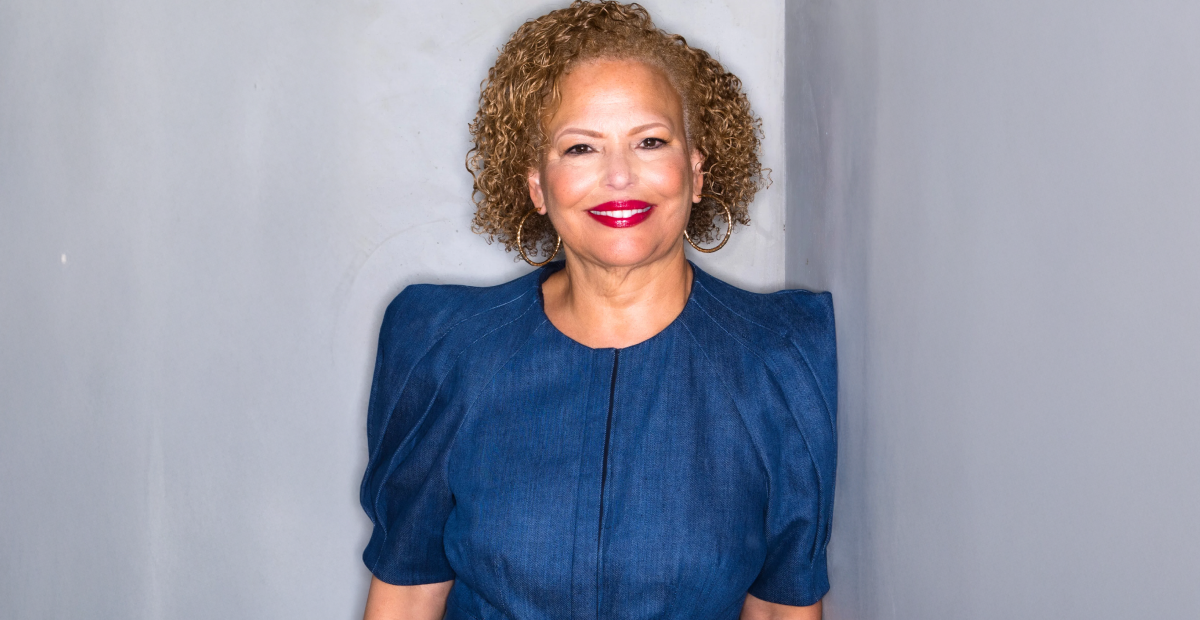Latinx women make up over 9% of the population, yet they occupy less than 5% of entry-level roles. Not only does this scarcity make them the most underrepresented group of women at the beginning of their careers, but it also snowballs into Latinx women facing the steepest climb up the corporate ladder. According to data from Lean In, Latinx women have the biggest drop in representation from entry-level to the C-Suite, holding only 1% of C-Suite roles today.
While systemic barriers and bias play a huge role in the lack of Latinx women at the top — for every 100 men promoted from director to VP, 90 Latinx women are promoted — there are also a few commonly held beliefs that Latinx women, and other women of color, hold onto that could be hindering them from success. In the best-seller, “Awareness Put Me On: Leading By Choice, Thriving By Design,” Hady Mendez, Founder and CEO of Boldly Speaking, discusses these beliefs and the mindset shifts she had to personally take on to succeed as a Latinx woman in tech and financial services. — Courtney Connley

Excerpt from “Awareness Put Me On: Leading By Choice, Thriving By Design.”
There’s a saying in Spanish: “Calladita te ves más bonita.” Loosely translated it means “You are more pretty when you’re quiet.” I know. CRINGE.
This saying is quite common in Latinx families, and many of us are taught to adopt this mindset at a very young age.
Because of this damaging belief, I never learned the skills needed to advocate for myself. I allowed others to get away with vague comments or feedback. I allowed others to dismiss my contributions or sometimes even take credit for my work. I remember joining a business development team and having more success in my first year than my two more established counterparts. I never got recognized for my achievements. I’ll never know for certain the reasons why I didn’t receive the accolades I deserved, but I will always be a little mad with myself for not doing more to demand it. Managers and leaders gave me less than I deserved and I settled for it.
Looking back, I can honestly say I was too intimidated to demand what I had worked hard for and earned. I was too afraid of being punished for challenging my manager. I was too naive to realize that if I didn’t advocate for myself, I would never get what I wanted or deserved.
Sometimes it felt like the folks around me preferred it that way. The more fearful I was, the easier it was for them to overlook me without any consequences.
Letting Go of What Didn’t Serve Me
I’ve had a long career by any standard. Over three decades of navigating professional spaces in various capacities. I’ve worked as a consultant, an engineer, a project manager, a strategic program manager, a product manager, a business development manager, a relationship manager, an international volunteer, a community school director, a customer success manager, a head of equality, and a business owner. I’ve been a team member, a people leader, and a department head. My proudest moments are the times when I’ve made someone else’s life easier or better because of my work. I value authenticity, transparency, equity and inclusion. I've always viewed myself as ambitious, consistently striving to move forward in my professional journey.
When I think back to the times I didn’t get promoted when I hoped I would, the number one reason it didn’t happen was because I didn’t believe I deserved it. I had to let go of this belief.
Here are some other mindsets I’ve had to leave behind:
- People will advocate for you without your specific help and guidance. Let’s pretend that folks want to help you, that they see potential in you and want to use their power and influence to help you and your career. I’ve learned that folks need to know how they can help you, and only you can tell them what you need. Are you looking to get promoted? Easy. Ask them to advocate for you at the table where that decision is being made. Maybe you are looking to pivot into a new role or team; let folks know how they can support you in that endeavor. Perhaps you are hoping to work with a big client or get assigned to that juicy new project. Whatever you need/want, make it known. Let the right people (starting with your manager) know what you are hoping for and remind them of it often. When something works out, make sure you are reporting back and allowing others to share in your success. In the end, you reap what you sow, so make sure you are planting seeds everywhere!
- Hard work and keeping your head down is a recipe for success. I truly believe that we adopt limiting beliefs that need to be unlearned and replaced with empowering, limitless mindsets. In my case I was definitely taught to “work hard and keep my head down”. I was led to believe that I did not have to advocate for my work, that I did not have to build relationships to advance, and that I could simply rest on my laurels to get ahead. These proved to be some of the worst things I could believe in. As a WOC, it’s easy to get lost in the sauce if we are not deliberately and intentionally advocating for ourselves at every turn. Pay attention and use your words to get what you want.
- I can succeed without the sponsorship and support of others. I’ve learned the hard way that folks are busy trying to advance their own careers. It’s extremely hard to get someone with the right level of power and influence to care about you without understanding what's in it for them. I try to build genuine relationships with people at all levels and from all backgrounds. But let’s be honest, sometimes it’s challenging to demonstrate to others how helping you will benefit them. And yet, consistent and sustained promotions and recognition won’t come without their support. Moral of the story: you MUST figure out a way to get other people excited about you and invested in seeing you succeed. When asking for support or sponsorship, I like to appeal to the desire in others to amplify underrepresented voices. There most definitely are would-be sponsors out there looking for an opportunity to demonstrate their allyship. It’s our job to find them. And remember, when we make our sponsors look good, everyone wins.
- I don’t have to prove myself. As a WOC, this is all too real. You will be proving yourself over and over again. The best thing you can do is lean into it. Have your elevator pitch ready to go and share it often. When I was a Customer Success Manager meeting customers for the first time, I would initially introduce myself by sharing my name and letting my customers know I would be their primary point of contact. That was pretty much it. I noticed that all of my peers were sharing where they went to school, if they had an MBA, what top-tier firms they previously worked for, even sometimes name-dropping (I know such and such senior leaders at your firm). WOW! That was eye-opening for me. I quickly learned that I had to have my story in order and be ready to share it, especially when people were meeting me for the first time. Introductory calls are not the time to be humble or shy.
- I don’t need to develop a personal brand since I am already gainfully employed. Wrong. You heard it here. Absolutely everyone needs to have and be building a personal brand at all times. Why? Well, for starters, you need a personal brand to get promoted within your own firm. People need to know who you are, what you bring to the table, and what makes you stand out. Those are facts. In addition, if you were ever to be let go or decide to move on to another company or role, you will use your personal brand to help you get to the next step. You should not wait until you need your personal brand to build one. That’s too late. You should be building one at all times.
PRO TIP: I like to keep a “brag sheet” to track all of my contributions and successes. I add items to the brag sheet as they happen so that I don’t forget any of my achievements. This is an easy way to keep track of your accomplishments and share them with others. You know when your manager asks you to share your accomplishments for the past year? This is when the brag sheet will come in handy the most. You can literally cut and paste your achievements straight from your doc.
A good brag sheet should have the following details:
- What you achieved
- The date/timeframe
- The impact of your achievement on your
- project/team/organization
A great brag sheet will even include testimonials from people on the receiving end of your exceptional work.
I’ve used a brag sheet to get promoted, to pivot to a new role, to get prospects to hire me, to build a brand on LinkedIn, to put together a Speaker Sheet for my business services, and more. Think about how easy it will be to self-promote once you have your brag sheet in place!
Remember this: if you want to be celebrated and recognized, you MUST remind people on a regular basis of all the amazing things you’ve accomplished and the impact those things have had on others.
About Hady: Hady Mendez is an Amazon best selling author, Latina speaker, and ERG coach based in NYC. She is the founder and CEO of Boldly Speaking LLC, a company that is transforming the professional experiences of women and people of color by empowering underrepresented employees with the skills to self-advocate, self-promote, and ascend into leadership roles within Employee Resource Groups (ERGs) and across organizations.
Hady’s essays have been featured in Business Insider and #WeAllGrow Latina and her thought leadership has been leveraged by organizations such as Hack.Diversity, Power To Fly, Lean in Latinas, and many others.
Hady is a Latinas in Tech Luminarias 2022 Honoree, a Women of ALPFA 2023 “Latinas to Watch”, and a LinkedIn “Top Coaching & Mentoring Voice.”



